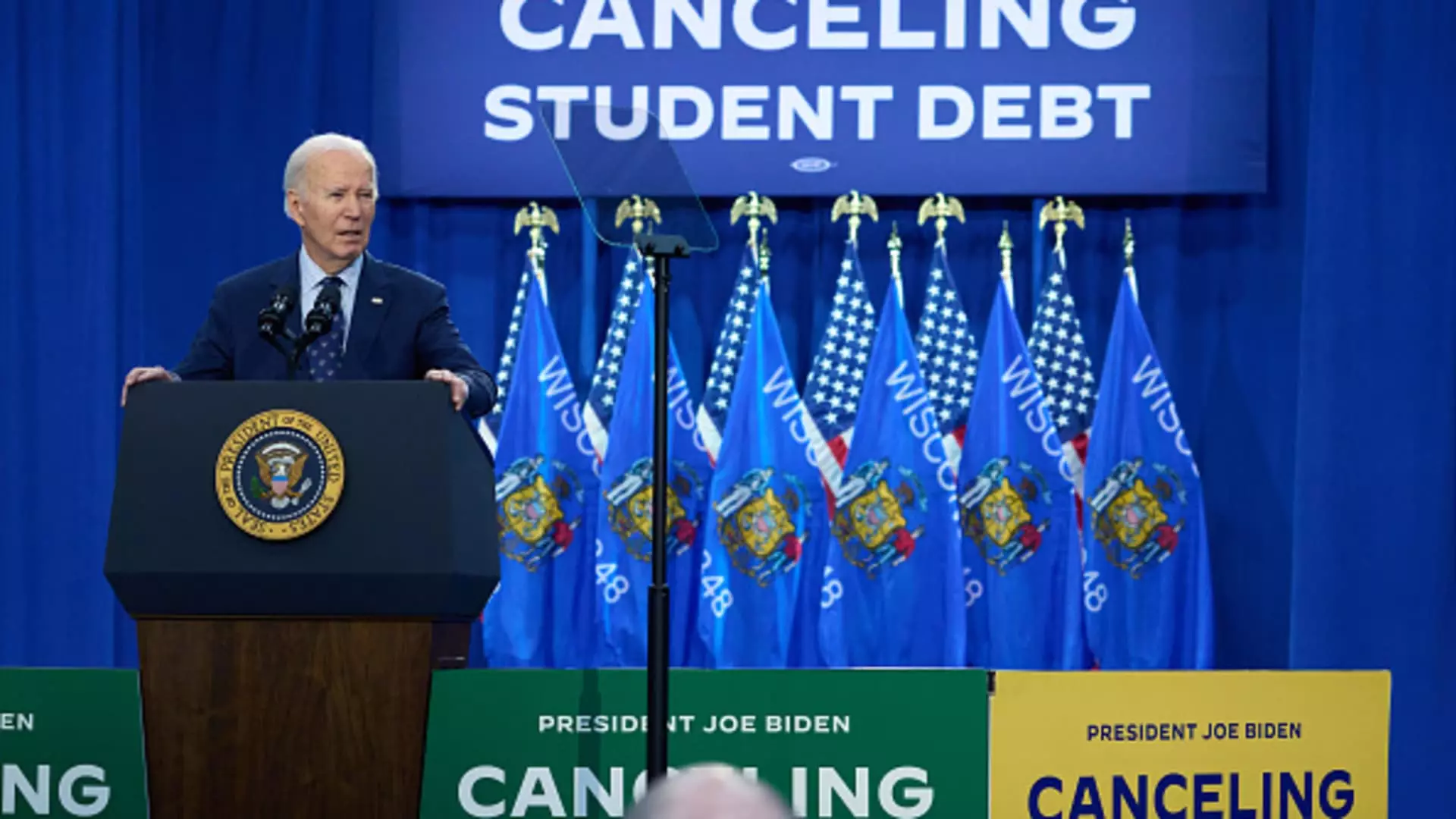President Joe Biden is considering forgiving the debt of millions of federal student loan borrowers just weeks before the upcoming election. According to the Biden Administration’s Spring 2024 Unified Agenda, the U.S. Department of Education will finalize its rule on student loan relief in October. The current timeline indicates that the execution of the program might not take place until July 2025. However, experts suggest that the department could expedite the process by publishing a notice in the Federal Register, allowing for earlier implementation.
There is speculation that the decision to delay debt forgiveness until October is a strategic move to keep the contentious issue alive during the election season. Higher education expert Mark Kantrowitz anticipates that the publication of the rule in early October could intensify the conflict between Democrats and Republicans, potentially influencing voter sentiments. The Biden administration’s focus on providing relief to a significant number of borrowers as quickly as possible has garnered both support and criticism.
Conservatives question the fairness of forgiving student debt, arguing that it places an undue burden on taxpayers. Ryan Walker, executive vice president of Heritage Action for America, expressed opposition to the administration’s debt relief plans, highlighting concerns about constitutional issues and unfair distribution of financial responsibilities. The debate over canceling student debt has become a pivotal issue, with nearly half of all voters expressing its importance in the upcoming elections.
A recent survey conducted by SocialSphere revealed that canceling student debt resonates with a large portion of potential voters, especially among Gen Z, Black, and Hispanic demographics. Despite political affiliations, a significant number of young conservatives also support some form of student loan cancellation. The intersection of economic policy and social equity has drawn attention to the role of student debt forgiveness in shaping voter preferences.
President Trump’s approach to student loan relief contrasted with Biden’s, as he sought to dismantle existing loan forgiveness programs and reduce the Department of Education’s budget. Trump’s stance on education financing has fueled tensions with Biden, setting the stage for a heated debate on the future of student loan policies. The contention between the two administrations underscores the complex interplay of political ideologies and economic interests in the realm of education financing.
Previous attempts by the Biden administration to implement broad student loan forgiveness faced legal challenges from Republican-led states based on constitutional grounds. With a revised debt relief plan in the works, the potential for further legal battles looms large. The recent Supreme Court ruling overturning the Chevron doctrine adds another layer of uncertainty to the regulatory landscape, signaling a shift in judicial deference to federal agencies. As Biden’s debt forgiveness proposal unfolds, the intersection of legal, political, and economic factors will shape the future of student loan policies in the United States.

